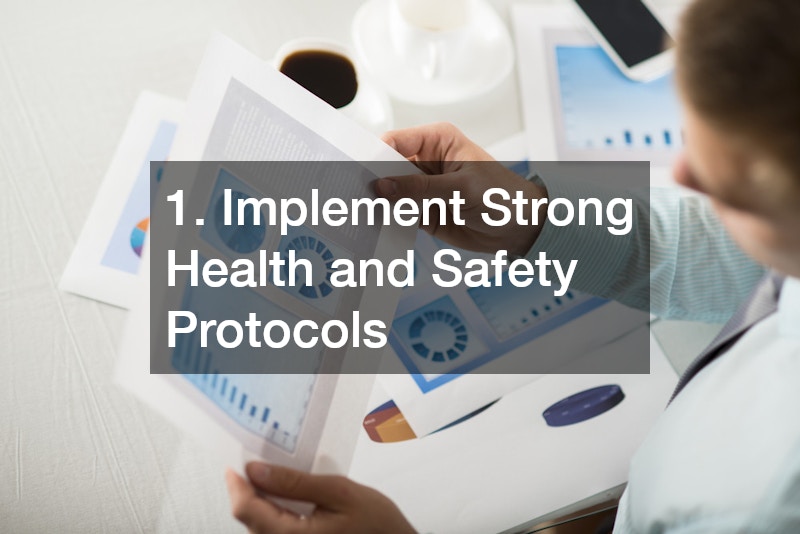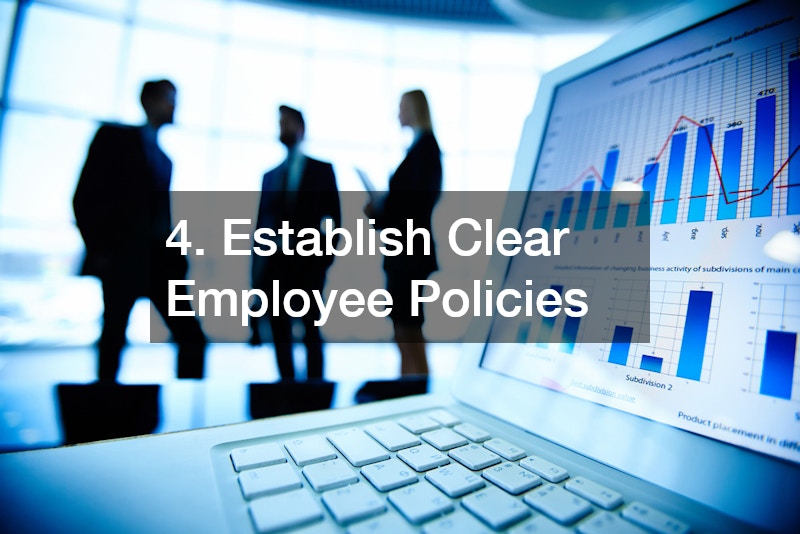
Managing liabilities is a cornerstone of running a successful business. Liabilities represent potential risks or obligations that can arise from various operational, financial, or legal factors, potentially affecting a company’s stability and reputation. Effectively addressing these risks is not just about avoiding financial losses; it’s about ensuring the long-term sustainability and growth of the business. Whether it’s navigating complex regulations, safeguarding employees and customers, or protecting assets, a proactive approach to liability management is crucial.
This comprehensive guide delves into ten essential strategies that business owners can adopt to manage and reduce their estimated liabilities. From establishing thorough health and safety measures to adhering to ever-evolving employment laws, these strategies are tailored to shield businesses from potential pitfalls. They also provide a roadmap for fostering a risk-aware culture that supports innovation and growth. By exploring these actionable solutions, business owners will gain insights into addressing liabilities across different sectors, understanding their implications, and implementing effective mitigation techniques.
A company’s success is not solely determined by its revenue streams but also by its ability to identify and manage potential liabilities before they escalate into crises. The ability to proactively manage risks contributes to smoother operations, enhanced compliance, and stronger resilience against unexpected challenges. Moreover, reducing liabilities isn’t just about minimizing threats—it’s an opportunity to improve processes, strengthen relationships with stakeholders, and foster an adaptable business environment.
By fully understanding and implementing these strategies, businesses can safeguard their operations while unlocking new avenues for innovation. In today’s complex business landscape, the capacity to transform liabilities into opportunities is what sets thriving companies apart from those that falter. This guide aims to equip you with the tools and knowledge necessary to turn liability management into a competitive advantage, ensuring your business remains robust and future-ready.
1. Implement Strong Health and Safety Protocols
Implementing robust health and safety protocols is an essential step for any business seeking to mitigate its liabilities and foster a secure working environment. Prioritizing workplace safety is not only about adhering to legal obligations but also about protecting employees, minimizing disruptions, and preserving the company’s financial health. By reducing the likelihood of workplace accidents, businesses can significantly lower the risk of incurring costly expenses related to medical claims, legal proceedings, or lost productivity. Additionally, maintaining a safe work environment helps boost employee morale and demonstrates the organization’s commitment to its workforce’s well-being.
A proactive approach to workplace safety involves several key measures. Regular training sessions are vital for educating employees about potential hazards and equipping them with the knowledge needed to prevent accidents. Safety drills further reinforce preparedness, ensuring that employees know how to respond in emergencies. Routine inspections and audits can identify potential risks before they escalate, allowing businesses to implement corrective actions promptly. These efforts collectively create a culture of safety that not only safeguards employees but also enhances overall operational efficiency.
The expertise of personal injury attorneys can play a crucial role in bolstering these efforts. By consulting with legal professionals, businesses gain valuable insights into aligning their safety protocols with regulatory standards and industry best practices. Personal injury attorneys can help identify areas of vulnerability within existing policies and recommend improvements to mitigate potential risks. In the unfortunate event of an incident, these attorneys provide guidance and representation, helping businesses navigate legal challenges while minimizing reputational damage.
Failing to uphold adequate safety measures can lead to significant consequences, including hefty fines, compensation payouts, and damage to the company’s reputation. Personal injury attorneys can also serve as a valuable resource for understanding the potential ramifications of claims and lawsuits, emphasizing the importance of preventive action. By fostering a safe work environment, businesses not only reduce liabilities but also demonstrate a commitment to ethical practices and long-term sustainability.
2. Invest in Comprehensive Insurance Coverage
Insurance plays a pivotal role in safeguarding businesses against unexpected losses and liabilities. Investing in comprehensive event planner insurance, for instance, provides financial security if things don’t go as planned during an event. This type of insurance covers various scenarios, from cancellations to incidents occurring on the event premises.
The right insurance policies can greatly reduce the estimated liabilities a business might face. By transferring certain risks to insurance companies, businesses can stabilize their financial planning and ensure operational continuity. Thus, identifying specific needs and working with insurance professionals can streamline the selection of appropriate coverage.
Event planners, in particular, stand to benefit significantly from tailored insurance packages. Realizing the potential liabilities inherent in such operations, selecting adequate coverage becomes indispensable. Without it, the financial implications of unforeseen misfortunes could severely undermine business stability and growth.
3. Conduct Regular Risk Assessments
Regular risk assessments are crucial in identifying areas of vulnerability within a business. By proactively analyzing potential threats, organizations can take measures to mitigate potential personal injury attorney claims. Risk assessments provide insightful data that can inform decision-making and strategic planning.
Conducting these assessments involves a thorough review of operational practices and identifying scenarios that could lead to estimated liabilities. This systematic approach allows companies to preemptively implement changes that reduce or eliminate risks. Set procedures for early identification and resolution of potential hazards should be integral to your business culture.
Personal injury attorney claims can be particularly detrimental to businesses not prepared to deal with them. Thus, leveraging risk assessments helps prioritize which areas require immediate attention to avert these liabilities. As a result, businesses can nurture a safer environment for employees, clients, and stakeholders.
4. Establish Clear Employee Policies
Clear employee policies are essential in aligning the workforce with company objectives and legal requirements. Having well-documented guidelines in place is indispensable, especially for a custom home construction company where safety and precision are paramount. These policies protect both employees and the organization from misunderstandings and liabilities.
The development of clear and comprehensive employee policies can lower estimated liabilities by providing employees with a clear framework within which to operate. Such documentation minimizes confusion and enhances compliance with company standards and legal requirements. Ensure that all policies are accessible and communicated effectively to all employees.
Creating this framework not only nurtures a cohesive organizational culture but also aids in reducing the likelihood of disputes. Employees who understand their roles and responsibilities are less likely to engage in activities that could pose a liability threat. Regular policy review and updates should be carried out to adapt to any legislative changes or operational needs.
5. Regularly Assess Cybersecurity Measures
In an increasingly digital world, cybersecurity measures have become a top priority for businesses of all sizes. For businesses involved in sensitive activities like computer repairs, protecting data and systems from cyber threats is crucial. Breaches can result in grievous financial and reputational damage, accounting for significant estimated liabilities.
Routine evaluation and enhancement of cybersecurity frameworks can alleviate potential risks. This includes implementing strong passwords, regular software updates, and employee training. The cost of addressing security breaches often surpasses the investment needed for preventive cybersecurity measures, making it a worthwhile effort.
The repercussions of a security lapse can be far-reaching, from financial losses to loss of client trust. Therefore, businesses must remain vigilant and take proactive steps to safeguard their digital assets. By doing so, they can limit their liabilities and assure clients of their commitment to data security.
6. Manage Inventory Efficiently
Efficient inventory management is fundamental to the operational success of companies like an air conditioning company. An optimized inventory system ensures that businesses can meet client demands without overstocking, which ties up unnecessary capital. Mismanagement of inventory can lead to unwanted estimated liabilities, causing undue financial strain.
By utilizing modern inventory management tools, businesses can gain better control over stock levels, reduce waste, and improve order accuracy. These technologies provide real-time data, helping companies make informed decisions and minimize the risk of inventory inaccuracies.
Proper inventory management also mitigates risks associated with potential stockouts or surplus scenarios. Implementing effective inventory practices allows businesses to streamline operations and position themselves to meet customer demands responsively. Additionally, it provides a buffer against liabilities associated with supply chain disruptions.
7. Create an Emergency Fund
An emergency fund acts as a financial safety net for businesses, providing them with the resources to tackle unexpected challenges such as fire damage. This fund ensures that a business can continue operations despite unforeseen events, minimizing the disruption and reducing potential estimated liabilities.
Setting aside a portion of profits to build an emergency fund aids in maintaining financial stability. This reserve allows businesses to remain agile during times of adversity, whether dealing with natural disasters, sudden market downturns, or operational crises.
The concept of an emergency fund is to buffer against unpredictable financial strains. It enables companies to cover immediate expenses without resorting to borrowing or compromising their financial strategies. Consequently, it acts as a risk management tool, bolstering a business’s resilience in the face of adverse circumstances.
8. Consult With Legal Professionals
Seeking guidance from legal professionals such as a workers compensation attorney can provide invaluable insights into the complexities of business law and liabilities. These experts offer advice tailored to the specific needs and potential liabilities a business may encounter. Legal consultations are a prudent step in seeing possible liabilities from a preventative perspective.
Consistent communication with legal professionals helps businesses stay compliant with regulatory changes, minimizing the risk of unanticipated estimated liabilities. They can also assist in drafting contracts and agreements that protect the interests of a business and its employees.
Legal professionals play a significant role in navigating the intricate landscape of worker compensation claims, intellectual property rights, and other areas of concern. Their expertise allows businesses to address liabilities proactively, minimizing exposure to financial and legal risks.
9. Maintain Accurate Financial Records
Accurate financial record-keeping is a cornerstone of effective business management. For a roof replacement company, maintaining these records ensures compliance with regulatory bodies and helps track potential liabilities accurately. It provides a clear picture of an organization’s financial health and aids in strategic planning.
Inaccurate financial data can lead to erroneous estimation of liabilities, causing strategic missteps and financial strain. Implementing robust accounting systems and regular audits ensures transparency and reliability in financial reporting. Businesses must prioritize the integrity of their financial documentation to support sustainable decision-making.
Moreover, accurate records are indispensable during tax season and legal disputes. They enable businesses to present a factual account of transactions, revenues, and expenses. This accountability not only fosters greater trust with stakeholders but also mitigates the risk of legal repercussions associated with financial misreporting.
10. Comply With Employment Laws
Compliance with employment laws is fundamental in managing estimated liabilities associated with the workforce. Navigating these can be daunting, which is why consulting a local workers compensation lawyer is often advisable. They provide guidance ensuring the company adheres to labor regulations, minimizing legal risks.
Staying abreast of changes in employment laws helps prevent costly litigation and fines, which can arise from non-compliance. It is essential for businesses to institute policies that support fairness and equality in the workplace. These steps fortify the protection of both the employee’s rights and the company’s interests.
Compliance efforts should include regular training sessions for management and HR personnel on recent developments in labor law. Establishing a compliant environment reduces potential liabilities and enhances the reputation of a business as a fair employer. Moreover, it fosters a more positive workplace culture leading to increased employee satisfaction and retention.
Effectively managing business liabilities is integral to securing the longevity and success of any organization. By implementing these ten strategies, businesses can significantly reduce the risk of unforeseen expenses impacting their operations. From adopting comprehensive insurance policies to consulting with legal professionals, each measure offers a safeguard against potential threats. Addressing issues proactively ensures that businesses are well-equipped to handle difficulties as they arise. Furthermore, these strategies contribute to creating a robust framework for decision-making, fostering a secure operational environment. The priority should always be to combine preventive measures with adaptability, allowing for flexibility in handling unexpected challenges. Proactive management of liabilities frees businesses to focus on growth and innovation. By prioritizing risk management and compliance, businesses can build a strong foundation for sustainable success. As industries evolve and new challenges emerge, continuous vigilance in managing liabilities will maintain a competitive edge and drive long-term prosperity. Following these comprehensive strategies ensures that potential risks are mitigated, securing both the organization’s present stability and future growth.








